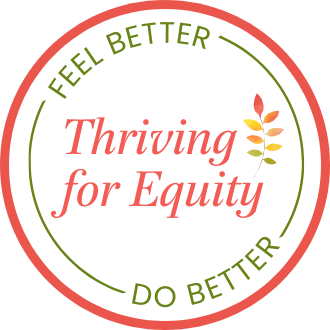Guest Post! Trusting the (blech) Process
Yay! Marquita Hamilton is back with another beautifully written and encouraging post. Missed her first one? You can check it out here.
I don’t know about you, but personally, I hate processes.
At least as they relate to “getting my life together.”
I want whatever needs fixing to be immediately fixed as soon as I recognize it’s broken. I honestly (though unrealistically) believe it should be fixed just because I decided it’s time for it to be fixed.
Isn’t that enough?
The truthful answer is, “no.” It isn’t enough. We are not allowed to be spectators in our healing and growth. We must be active participants. This is particularly true when we begin the process of healing from trauma.
Wouldn’t it be great if our minds and emotions worked just the same as our bodies?
When we are hurt physically our wonderful brain automatically and immediately begins the process of organizing the various cells, hormones, and chemical processes that are needed for our physical comfort and healing to begin. When we have a scratch or cut, we don’t have to think about the blood stopping or a scab forming. The torn flesh beneath is reformed, and the damage is repaired. Development, healing, or positive change are not autonomic processes; meaning, they don’t just happen.
I am really good at what I call “shrinking myself.”
I can sit in my head and figure out where the knots and “nots” are, I can figure out how and where I got off track. I’m really good at identifying (after the fact, of course) what triggered a cycle or pattern of behavior. I feel happy and proud of myself for being able to do that. It makes me feel “smart” to be able to figure those things out. But what I’ve learned recently is that I’m not so good at is the most important part: the follow through.
I see the knot, but don’t take the action to untangle it.
I see the “not” and don’t do what’s necessary to make it an “is.”
I identify the trigger, but don’t set proper boundaries to avoid it in the future.
The term for that is “analysis paralysis”. It is a helpful term introduced to me by a super smart sister friend. It basically means I get stuck in thought mode and can’t move forward.
It’s easy there in thought land.
I don’t have to take any real actions because “I’m figuring it out. I’m working it out.” Isn’t that mature and responsible?
Maybe. Maybe not.
The truth is, it's easier for us to identify the actions or inactions of others that result in our dysfunction or hinder our progress, than it is to identify our ability to change our lives - especially if some kind of abuse is part of our story.
I've learned that in this state, what I'm really stuck in is: “I know my problem, but I don’t know where to start to fix it… I feel powerless to fix it… I don’t know how.”
I’ve learned that it’s okay to not know.
The feeling of powerless is okay too, if we remember feelings don’t always tell us the truth.
The truth is, we have the power to effect the changes we want to see in our lives.
The first step is realizing, “It may not be my fault, but it is my responsibility.” It’s my life, after all. And your life is yours only.
We begin with ourselves.
In starting with ourselves, we are focusing our energies and will on the one human being with the most power to make a difference in our lives.
“Change” is a large and loaded word. The idea of it can feel overwhelming and scary. If we’ve been in a state where we’ve been denied agency over ourselves, it can seem even more daunting.
But don’t despair. Even if you weren’t before, you are in control now!
You (and I) have the reins.
We choose the destination.
We determine our direction.
We set the pace.
My father used to say, “The journey of a thousand miles begins with the first step.” It’s not his original saying, of course. But the point of it was that even with a long road ahead, the path towards its end is small and incremental.
One step can seem insignificant when compared to a thousand miles, but each step brings you that much closer. Each incremental change contributes to setting things right, to creating the life we want.
You and I are more powerful and resilient than we’ve been taught.
The present may be not to your liking. The room that holds your emotions and thoughts may be cluttered (mine is). The path from where you are to where you want or need to be may be unclear and filled with obstacles (I promise this is a ‘pep’ talk), and that’s okay. You’re starting the process (I really don’t like that word)!
The fact that you recognize you’re not where you want to be is good and healthy. Use that as encouragement to put a foot forward.
· That could be in the form of reaching out for someone to talk to,
· decluttering an actual room - or just your bedside table
· taking 10 minutes to list steps towards a measurable and attainable goal with an attached time frame for completion - then picking just one tiny step to take towards it - within 24 hours.
When you’ve checked off just one of those things, consider that “a foot forward.
With each step, the path will become clearer.
With each negotiated obstacle, you and I will be stronger, and we'll move that much farther out of the shadows and into the light.
Blessings to you on your journey.
